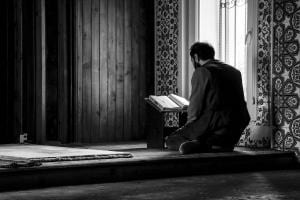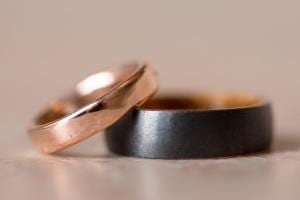
I typically steer clear of online debates and commentary, but felt this required a bit more of a discussion and could be a teachable moment for all of us. I also wanted to highlight a couple of things that we need to reflect upon as a community. I hope this provides some clarity and healing for all of us and pray we all can help become better from this.
- Our Scholars are Not Infallible…and that’s OKAY
Our religious scholars are human and humans make mistake. It should be understood that we should love and respect our scholars, but not expect them to be infallible individuals who can do no wrong. It hurts to see a lot of vile things and hate be pointed to someone you love and care for, but when someone falters or makes a mistake it’s ok—even our scholars. What’s important is for them to step up, admit their mistake, ask how it can be rectified, and commit to being better for next time.
- Holding National/International Level Scholars Accountable
There is no immunity from accountability for national/international level scholars. If you’re going to be in circles of socio-political influence and speak on behalf of Muslim Americans expect to be held accountable for your words and actions on behalf of the community. Holding a scholar accountable isn’t about waiting for a scholar to make a mistake or nitpick or wait for him/her to make a mistake, it means holding them accountable with the intention of ensuring they accurately represent the community and its beliefs, values, ethics, morals and views.
When given authority or position accountability comes along as a part of the job description.
“I have been given the authority over you, and I am not the best of you. If I do well, help me; and if I do wrong, set me right. ”
– Abu Bakr As-Siddiq (RA)
National/international level scholars who are speaking to government officials and in areas of influence should be kept accountable and advised accordingly to ensure they are well-qualified and/or prepared to do so. If they fall short or are unable to perform that outreach task or representation of the Muslim community at that level they should be advised to step aside and/or have a more experience and qualified individual to fill that role.
- Ride-or-Die Supporters
When someone who follows or is a part of the same organization a scholar is a part of they typically get defensive and fight tooth and nail to protect their man/woman. However, what is extremely important to remember is to remember that if you truly love someone you advise and correct them when they’re wrong and/or point out their shortcoming or mistake in a loving manner.
Just as you correct a child if they’re wrong we should be ok to correct our scholars if we love, care and respect them. Correcting people we love doesn’t mean we hate them. We should not act as ride-or-die supporters of scholars we love and care for even if they’re wrong or incorrect. Our religion encourages advising one another and enjoin righteousness and justice even with people we love.
Omar Ibn Al Khattab (ra) said, “Let not one of you see a fault in me except that he corrects it.” Thus, let’s work on helping our scholars grow their understanding and correct them if we truly love, care and support them.
The mentality of being ride-or-die no matter what a scholar you love and support is a dangerous mentality to have as one’s spirituality and imaan (faith) should not solely be tied to one scholar. We benefit from our scholars, love them, care for them and respect them, but we should not make the mistake of putting them on a pedestal and station higher than what is appropriate.
- Scholars need to Stay in their Lanes
For our national level scholarship there seems to be a lack of focus or direction. Either they’re willfully involving themselves in discussions and areas they lack understanding or expertise or they are being ill-advised by their mentors or advisors. Scholars need to stick to their areas of expertise to help best assist with the advancement of Muslim American community in the US.
While the statement was made in a retreat setting and scholars are entitled to their opinions it is dangerous when statements are made in a religious setting that may confuse the masses, cause a crisis of faith for some, and cause a lot of damage in terms of one’s understanding and implementation of Islam in their lives.
- Disagreements are OKAY and Natural
It’s ok for our community to have disagreements and it’s natural for it to happen. What’s important is how we discuss our differences and disagreements in a constructive manner. Unfortunately as a community we lack the collective maturity online and offline to discuss our differences without it devolving into an us vs. them debate and a clash of egos.
- …Character Assassination, Mocking & Slander is Not
It’s unfortunate but every controversy that happens in the Muslim community often leads to folks knowingly or unknowingly engaging in character assassination and slander. This happens offline and online and it’s something we need to be cognizant of when we engage in discussions or debates on issues and individuals we’re talking about.
Unfortunately, our community—especially when it comes to online debates we delve into ugly debates, slander, character assassination and public shaming by tagging scholars or organizations we disagree with. Is it not more productive to talk to the party you disagree with then about them? Why vent online on social media? Find a constructive way to address the problem–also sometimes silence can be best in situations of confusion and conflict.
It really was unfortunate to see and observe national level leaders post Facebook posts and other posts on other social media platforms mocking Sh. Hamza Yusuf and/or character assassinating and slandering him. Other scholars were far more respectful and tactful in their disagreements with Sh. Hamza and tackled the more problematic issue of the theological argument mentioned in the video.
The Prophet Muhammad (peace be upon him) said:
The Muslim is the one from whose tongue and hand the Muslims are safe.
(Source: Ṣaḥīḥ al-Bukhārī)
- Difference between Hating & Constructive Criticism
A lot of individuals who disagreed with Sh. Hamza and were hurt by his statements had legitimate grievances with his statements and while they may have been emotional in their response due to having family or friends who were victims of violence in Syria, Palestine and other countries. Others within the community who I call Hater Ninjas who wait for their moment to strike and are waiting for folks to stumble or make a mistake or misstatement and during every controversy they seek to tear down, mock, ridicule, and character assassinate anyone who disagrees with them.
The former folks have a very valid grievance that should be addressed. Their ideas, thoughts, views and feelings should be listened to in a constructive manner. The latter are individuals who should be ignored and not taken seriously.
- Disconnect with National/International Level Scholars and Community
There seems to be a disconnect with the national level scholarship and the grassroots community. When a scholar keeps to a particular circle or keeps him/herself distanced from the community for too long it becomes difficult to understand, empathize or relate to one’s community they claim to represent. This is apparent when we see some scholars who essentially become road-scholars who simply do speaking engagements from community to community or conference to conference.
- Focus on Local Empowerment, not International
For scholars here in the US their focus should be on the education and empowerment of the Muslim American community here in the US. This is not to say to not advocate for causes and injustices happening to Muslims overseas, but this is to say that their efforts and resources to empower Muslim Americans to be far more effective in making an impact here locally and by extension internationally. Muslim Americans have the greatest potential to impact domestic and international issues if we learn to effectively mobilize and organize ourselves and our resources. Scholars need to help drive that growth in our community by providing religious guidance within our American socio-cultural context.
- Sincere Apologies & Forgiveness
Sh.Hamza issued an apology which was great, but some argued it was lacking. However, we shouldn’t doubt his sincerity of service to the community.More could have been said and done to rectify the situation and pray more clarity can be made in regards to addressing the theological argument he made and also a clearer apology could have been made to truly address the pain and hurt of individuals who were hurt by his statement. However, the way this can be rectified can only be determined or suggested by individuals who were offended by his statements. In any apology a sincere change in behavior and work to rectify a situation is the best apology.
InshaAllah (God-willing) we see change for the better and pray for Sh. Hamza’s success, good health and ability to help empower the Muslim community. Ameen.
In our history we have moments where disagreements and hurtful moments occurred that divided the community. One moment we should remind ourselves of is the moment where Bilal (RA) was called “Oh you son of a black woman” in a derogatory manner by Abu Dharr (RA).
Once, while his Companions got together in a gathering and the Prophet s had yet to come, Khalid B. Al-Walid, Abdurrahmann B. Auf, Bilal B. Abi Rabah, and Abu Dharr were among those in attendance. Abu Dharr began speaking, and Bilal corrected him. Abu Dharr exclaimed out of anger, “Even you, O son of a black woman, try to correct me?”
Bilal got up, visibly upset at what was said, and said: “By Allah , I will report you to the Prophet.” He went to him and informed him of what was said and the Prophet (SAW) became very angry.
Abu Dharr rushed to meet the Prophet s and said “Peace be upon you, O Prophet of Allah y.” He continued, “I am not sure if he responded to my greeting due to his extreme anger.” Then he said: “O Abu Dharr! Have you ridiculed him on account of his mother? Indeed you are a man in whom there remain traits of the pre-Islamic era!” Abu Dharr wept and said: “O Messenger of Allah , ask Allah to forgive me.” He left the Masjid weeping and when he saw Bilal, he put his head on the ground and said to Bilal, “O Bilal, I will not move from my position till you put your foot on my head. You are the honorable and I am the disgraced.” Bilal wept, and kissed the cheek of Abu Dharr and said: “A face that has prostrated to Allah is not to be stepped on—rather, it is to be kissed.” (Bukhari)
This moment is a beautiful moment to understand how to resolve conflict, disagreements and grievances. A few things to note:
- A hurtful statement was made
- Bilal (RA) reported the situation to the Prophet Muhammad (peace be upon him)
- The Prophet Muhammad (SAW) didn’t immediately act upon the information Bilal (RA) told him, but validated it by calling Abu Dharr (RA)—something we need to do is when we hear information is to validate it and ensure it’s correct and ask for clarification if there is any warrented.
- The Prophet Muhammad (SAW) took the information and acted upon it and addressed it head on to the offending party.
- Abu Darr (RA) immediately and sincerely asked for forgiveness from Bilal (RA) and did not center himself as the victim and even literally humbled himself physically to show his sincerity. Likewise, when it comes to sincere apologies one needs to admit his/her mistake, ask how it can be corrected, and show sincerity through action of rectifying the situation.
- Bilal (RA) forgave him.
Our community truly needs to learn from this situation and understand how to effectively resolve conflicts and disagreements. We see in the above situation that the victim’s grievance was first heard, then validated, and lastly rectified by the offending party with acknowledgement of the wrong, sincere commitment to changed behavior.
- Don’t Forget the Real Victims of This
In this entire controversy let us not forget our oppressed brothers and sisters in Syria, Palestine, India, Kashmir, China, Yemen and all over teh world and let’s work towards supporting them. Rather than consuming ourselves with commentary on this we should work on putting our energy and efforts in helping them through relief efforts and lobbying our elected officials for victims of oppression and violence all over the world.
I pray that all individuals who were hurt by Sh. Hamza’s statements are given full healing and sakeenah (tranquility) in their hearts, grant them the ability to forgive and show forbearance, grant justice and freedom to all oppressed Muslims in Syria, Palestine, China, Yemen, Kashmir, India, here in America with African American brothers and sisters getting killed and oppressed and immigrant families on the Southern Border getting locked up and dealt with unjustly and all oppressed people in all lands.
May our scholars be given the humility, guidance, and ability to correct their mistakes, sincerely seek forgiveness and become better by learning their mistakes.
May Allah unite our hearts and our community and make us a community full of love, mercy, compassion and justice that can impact the world for the better. Ameen.











